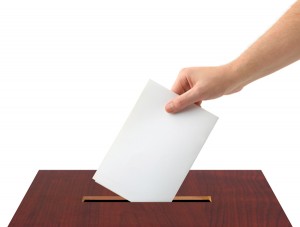 Arkansans have long said they thanked their Maker for Mississippi. Lately, they may be just as thankful that they don’t have to vote in Alabama.
Arkansans have long said they thanked their Maker for Mississippi. Lately, they may be just as thankful that they don’t have to vote in Alabama.
That’s the state that has produced two of the nation’s best college football teams and its most famous Senate candidate, Roy Moore.
You probably already know about the controversy surrounding Moore, and you probably already have an opinion about it. Many Alabama Republican voters have dismissed the accusations against him, or at least rationalized them away. But some find themselves in a similar situation as last year’s presidential election. They feel they must choose between a Republican they can’t support because of his character qualities, or a Democrat they can’t support because of his politics, or other reasons.
Seven write-in candidates
Seven other candidates have entered the race, but if Alabama voters want to vote for them, they’ll have to write them in. In Alabama, only parties that won 20 percent of the vote in the previous election stay on the ballot.
Winning as a write-in candidate for a major state or national election is almost impossible, though it has been done. Alaska Sen. Lisa Murkowski was re-elected that way in 2010. Central Arkansas voters in the 2nd Congressional District elected school segregationist Dale Alford to the U.S. House of Representatives in 1958.
Arkansas more inviting to third parties, independents
Alabama basically shuts out third party and independent candidates. In contrast, Arkansas’ laws at least give them a fighting chance. Here, parties that won 3 percent in the previous presidential or gubernatorial election stay on the ballot automatically. The Libertarian Party has come close, winning 2.65 percent in the 2016 presidential race after winning 1.92 percent in the 2014 governor’s race. Even then, political parties can get on the ballot by collecting 10,000 signatures. By doing so, they are declared a “new political party,” and then they hold a convention to nominate candidates. Independent candidates must collect a certain number of signatures based on the office they are seeking.
Third parties complain about the signature requirement because of the time and expense. The other issue is timing. Under previous Arkansas law, third parties were required to hold a convention by the end of the candidate filing period. Because Arkansas had a March 1 primary last year, the Libertarian Party was forced to hold its convention in October 2015 for an election that occurred in November 2016. After the party sued, the Legislature changed the law so that third parties must now hold their nominating conventions by noon on the day the primaries occur, which will be May 22 this year. The Eighth Circuit Court of Appeals declared the case moot last week.
Independent candidates, meanwhile, must submit their signatures by the end of the filing period March 1. They have 90 days to collect them beforehand, which means the clock has started. So far a couple of candidates for Congress have said they plan to run that way.
Say what you will about Arkansas’ laws, but they’re clearly more open to third parties and independents than Alabama’s.
You don’t have to vote for the lesser of two evils
More important than changing any laws would be changing one big assumption – the one where voters believe they must select either a Republican or Democrat, even when choosing between the lesser of two evils.
A vote is a statement of one’s principles, so voters should feel free to select the candidate that best matches theirs – even if it’s an independent or third party candidate who has little chance of winning.
There’s no such thing as a “wasted vote,” because one year’s 2.65 percent may become the next year’s 5 percent, and so on. For example, on March 19, 1854, the Republican Party didn’t exist. The next day, a meeting occurred in a Wisconsin schoolhouse. Six years later, Abraham Lincoln was elected president.
Sometimes change happens that fast. Sometimes it takes a long time. But it only happens when people decide to do something different than what they’ve been doing. Elections give voters that choice.
By Steve Brawner
© 2017 by Steve Brawner Communications, Inc.
The main thing is that we live in a plutocracy. Big Money (the NRA, Big Pharma, etc.) backs candidates–seldom candidates from small parties that have little chance of winning. Once their candidates win, they are of course obligated to do the bidding of their donors. It happens every time. Just follow the money. The U.S. has the best legislators that money can buy. No one can get elected in this country without heavy financial backing.
Good points – but they could get elected with an involved and independent-minded citizenry. The actual vote – when people are pulling the lever in the ballot box – is rarely bought.